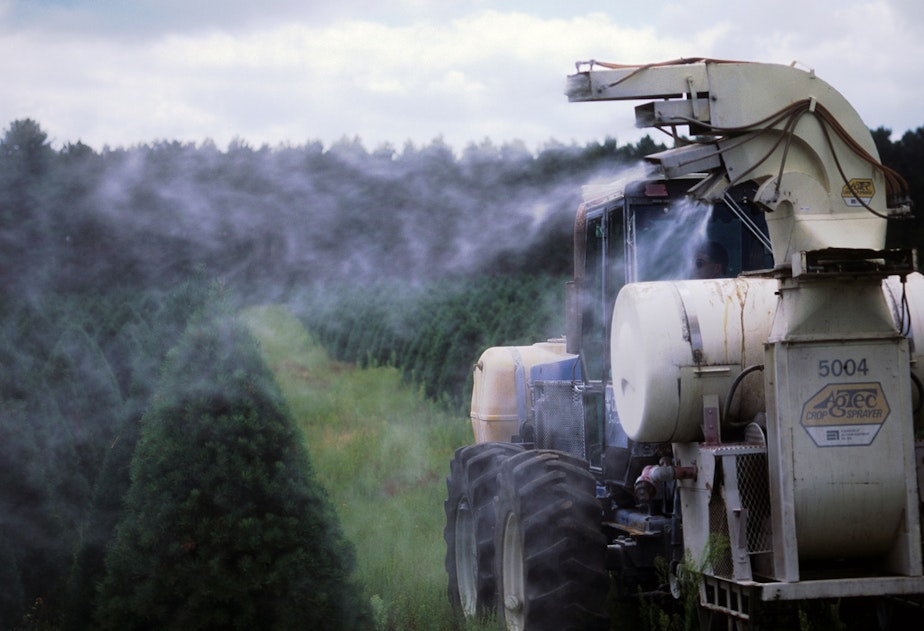EPA Toughens Pesticide Rules To Protect Farmworkers

Stronger rules for pesticides sprayed on farms and in forests, greenhouses and nurseries can cut health risks for workers, the federal government said in rolling out new safety standards this week.
That news doesn’t come too soon for farmworkers like Martin Rios.
He used to mix-up big batches of pesticides, then spray them on grape orchards in eastern Washington. He knows it’s a risky job.
“Those companies make pesticides to kill,” he said.
Rios was careful, but one day during spraying, the chemicals landed him in the hospital.
Sponsored
“I had vomits, red eyes, headache ... and like a tremble in my body,” he said.
After that incident, he’d get allergy-like symptoms every time the crops were sprayed.
He says he asked supervisors for better safety equipment, but they refused.
Rios worked in agriculture 23 years. Then he took some advice.
“My family doctor told me if you want to be there in the fields, believe me you’re going to have more problems," he said.
Sponsored
Rios no longer works in the fields, but he still worries about cancer. Many studies link pesticide exposure to cancer, birth defects and neurological diseases.
The Environmental Protection Agency announced the new rules on Monday. EPA Administrator Gina McCarthy says the change are long overdue.
“Many of the most common types of incidents can be prevented if we adjust our standards to be more protective,” she said. “So that’s exactly what we sought to do.”
One major change is the setting of a federal age requirement for the first time. Workers who handle pesticides will need to be at least 18. Other states already have implemented a similar rule – in Washington, the minimum age is 18.
EPA also will now require that workers get training on pesticide risks - every year. Currently workers have to be trained only every five years.
Sponsored
Other changes include whistleblower protections, better notification around work sites and stricter enforcement of rules. The EPA expects to phase in the changes next year.
But Martin Rios thinks another change would make a big difference for farm workers, and it’s not included in the EPA’s updated rules.
Rios wants farm owners to provide a place onsite where pesticide handlers to wash their work clothes and equipment. He says the only option for many workers is to wash the clothes at home and potentially expose their families and children to these toxic chemicals.
Photo: Christmas Tree Farm by Wisconsin Department of Natural Resources on Flickr (CC BY-ND 2.0)

